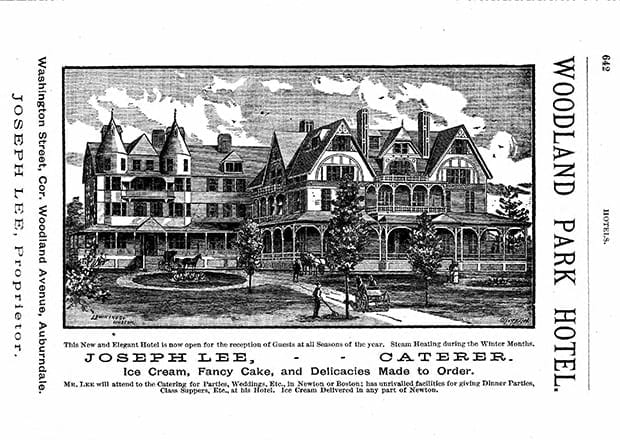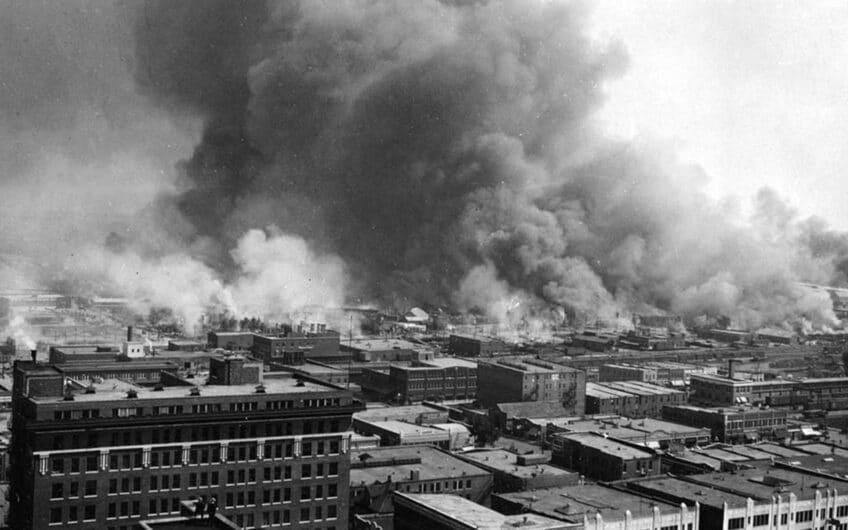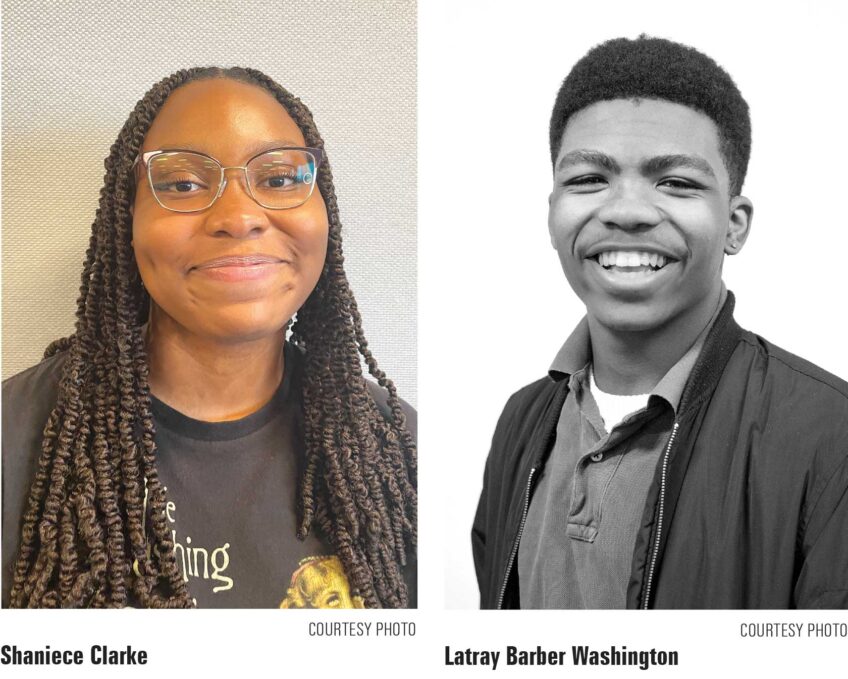

Joseph Lee
After having spent more than a decade of his childhood in bondage, in the late 19th century African American Joseph Lee became one of the most talked about hotel proprietors and restaurateurs in New England.
He was born between 1848 and 1849, in Charleston, S.C., to slave parents Susan and Henry Lee. Not much is known about his early years. A Freedman’s Bank record dated January 30, 1872, makes reference to a “light” complexioned 24-year-old Joseph Lee, who was born and raised in Charleston and who listed Susan Lee as his mother. The record reveals that he was employed as a servant in Beaufort then. At some point in his early life, he became a skilled chef and baker.
In 1875, Joseph Lee married Christiana Howard, a schoolteacher in Philadelphia. She was born free in 1850 in Sandy Springs, Md., to Rebecca and Greenbury Howard. Her mother was a dressmaker and her father was a laborer.
Christiana bore four children of the marriage: Genevieve, Joseph Howard, Therese and Narka. In February 1876, in Pennsylvania, she gave birth to their first child, Genevieve. The Lees made their way to Massachusetts by June of 1878, as their second child, Joseph Howard, was born there at that time. Joseph Howard attended high school in Newton and, in 1896, enrolled at Harvard College, where he was a member of the varsity football and crew teams. He eventually received a Bachelor of Arts degree from the college in 1903.
In 1880, the Lee family resided in Needham. Joseph Lee found work at a boarding house. Two years later, he leased the Woodland Park Hotel on the corner of Washington Street and Woodland Avenue in Auburndale — one of the villages of Newton. It was just a summer hotel then, standing in the middle of a sand bank. In 1883 Lee purchased the place, built additions to it, and enlarged and beautified the grounds.
During the summer of 1885, in connection with his Woodland Park Hotel, Lee also managed the Fort Point House, a first-class family resort on Cape Jellison in Stockton, Maine.
Lee’s investment in the Woodland Park Hotel must have become profitable by 1886. That year, the Boston Daily Advertiser listed him as one of “Newton’s rich men” — among the town’s large taxpayers. Lee added a new annex to the hotel, containing bowling alleys and billiard and pool rooms, and formally opened it to the public on May 2, 1890. A year later, the Advertiser described his establishment as “a picturesque structure, with gables and towers, dormer windows, high chimneys and wide, shady verandas.” His hotel was “surrounded by seven acres of well-kept grounds, provided with tennis courts and laid out in pretty drives and walks.”
Open to visitors throughout the year, the elegant guest house provided unrivaled facilities for hosting class suppers, dinner parties and other social events. Lee delivered ice cream, fancy cakes and delicacies made to order from the Woodland Park Hotel to all parts of Newton. He catered parties and weddings as well, in both Newton and Boston. At that time, he also owned The Abbotsford, a top-quality hotel at 186 Commonwealth Ave. in Boston. Indeed, the proprietor “proved himself one of the most successful and pleasing hotel men in New England,” wrote the Advertiser.

Joseph Lee received a patent in 1895 for his invention of a bread crumbing machine.
Many distinguished guests stayed at the exclusive Woodland Park Hotel. For instance, on September 16, 1891, President Benjamin Harrison’s family paid a visit. Mrs. Harrison boarded there for about three weeks, while the rest of the family — Mr. and Mrs. J. R. McKee and their two children — spent the winter at the hotel.
How did the president of the United States learn of the Woodland Park Hotel? Six days before the presidential party arrived, Lee explained, “The whole story is this. Mr. McKee, as you know, is a Boston man of business and has not only known of me and the Woodland Park for a long time but has been out here and is also a member of the Boston Trade Club. He is also aware of the charms of The Abbotsford, my Boston hotel, and has said many times that he intended to bring the President and his family to Woodland Park.” The hotel owner added, “Mr. McKee visited the house last summer” and “enjoyed his stay very much.”
For several seasons, Walbridge Abner Field, Chief Justice of the Supreme Judicial Court of Massachusetts, was a guest at the hotel. On November 24, 1891, the Earl and Countess of Aberdeen and Lady Marjorie Gordon were guests, and on March 22, 1892, Lady Henry Somerset, a British philanthropist, temperance leader and champion of women’s rights, had a sojourn at the hotel.
Joseph Lee served on the executive committee of the Massachusetts Hotel Association, and he was a member of the Hotel Men’s Mutual Benefit Association. He also participated in the battle for civil rights. From Feb. 4 to Feb. 8, 1890, he served as a Massachusetts delegate to the Convention of Colored Men in Washington, D.C. There, the American Citizens’ Equal Rights Association was formed to secure the full rights of black men, especially in the South.
A contemporary observer noted that the Lees were “included in Boston’s leading colored society and no circle” was “complete without their presence.” He described Mrs. Lee as “a woman of culture and refinement and magnificent personal charms.”
Joseph Lee was a successful inventor as well. On Aug. 7, 1894, he acquired U.S. patent no. 524,042 for his dough-kneading machine, intended for use in hotels and large houses. On June 4, 1895, he secured U.S. patent no. 540,553 for his bread crumbing machine.
Due to a severe economic depression, which began in 1893, Lee gave up the Woodland Park Hotel in 1896. But the following year he opened the Pavilion Restaurant — a “grand elevated” fine dining establishment overlooking the Charles River and Norumbega Park. Norumbega Park was a popular new amusement park at the end of the Commonwealth Avenue trolley line, in Auburndale. It featured a variety of rides, a penny arcade, a deer park, an outdoor theatre, a gorgeous electric fountain, picnic areas and splendid canoeing on the Charles River.
A sightseer on July 16, 1897 recorded that trolley “cars run into the very park itself on a loop track, and just at the swell of the loop is the elevated restaurant of the renowned Joseph Lee, who served delicatessen under the roof or under the stars as his customers wish.” The Pavilion Restaurant seated more than 250 people.
By 1897, Lee and his family had relocated to 395 Boylston Street in Boston, where he continued to attend to his thriving catering business—the Lee Catering Company. On April 19 that year, a local newspaper reported that he also managed the new Trinity Court Café on Dartmouth Street, where “ladies” found “the coziest place in Boston to get the finest Welsh rarebit.” Later the same year, however, in November, Lee left the café to devote more personal attention to catering and cuisine at 395 Boylston Street.
In 1900, Lee moved his family and catering concern to 528 Columbus Avenue in the South End, across the street from the residence of his longtime friend John Henry Lewis, a prosperous African American who owned the Lewis Tailoring Establishment at 408 Washington Street. Attorney Archibald Grimké, former consul to the Dominican Republic, and his 20-year-old daughter, Angelina Weld Grimké, a future teacher, poet and essayist, were boarders at the Lee family home then.
Joseph Lee also owned a summer resort in Squantum — a coastal neighborhood in the northernmost section of Quincy, Massachusetts. Promoting his restaurant, the chef suggested, “Take your friends to the Squantum Inn” where “you can always count on getting a first-class fish dinner.” The inn’s regular diners included Boston’s Mayor Thomas N. Hart, Governor John L. Bates, Statehouse representatives, and members of various political and charitable organizations.
On June 11, 1908, at his South End home, Joseph Lee died of pulmonary tuberculosis at the age of 59. Within a year of his passing, his wife bought the Pratt estate near Park Avenue in Squantum. There, she opened a restaurant similar to the Squantum Inn and, in memory of her husband, named it Lee’s Inn. Open during the summer season as well, the inn provided an à la carte bill of fare, served dinners and broiled live lobster.
Until she died of heart disease on February 9, 1916, at the age of 65, Christiana Lee managed Lee’s Inn, with the help of her daughter Genevieve. Eulogizing the businesswoman, the Boston Globe wrote, “Mrs. Lee was a woman of executive ability and enjoyed a great degree of popularity.” Indeed, the Lees were well known to thousands who were their guests at both the Squantum and Lee inns and the Woodland Park Hotel. Joseph Lee and his wife are buried at Newton Cemetery.






